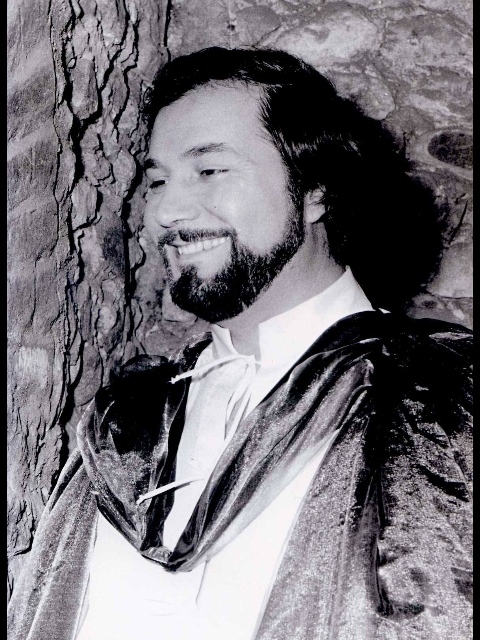Already as a child, he knew that he wanted to be a singer, so the endeavor to attend an agricultural college was not of long
standing, and he had his voice trained in Rome. He made his debut in 1963 at the Spoleto Festival as Loris (and not, as
you'll read most everywhere, at the 1965 Wexford Festival as Alfredo). The next years were spent at smaller Italian
theaters, but also in Trieste, Parma, and Wexford of course.
His breakthrough came in 1971, as Vasco da Gama at the Maggio musicale in Florence – one of his two biggest successes.
The other was a Verdi Requiem in Viterbo in 1977, Riccardo Muti conducting. The years in between were his period of prime:
in 1973, he made his debut at Covent Garden as Pinkerton (he returned as Rodolfo, as Gabriele Adorno at for another Requiem),
and in 1975, at La Scala as Foresto. Whoever heard him in those years, was very enthusiastic, and convinced that he was THE
Italian tenor to come. Mario Del Monaco said "Finally, I've heard a tenor voice again." However, bad choice of repertory frustrated those
hopes: too many appearances as Radamès, Alvaro, Don Carlo, Arrigo (Vespri siciliani), Don José or Dick Johnson led
to Luchetti's quick decline. He sang on, and on a high international level (Salzburg Festival, Vienna Staatsoper, Arena di
Verona, Metropolitan Opera, Deutsche Oper Berlin, Hamburg, Munich, Paris Opéra, Théâtre de la Monnaie,
Philadelphia, Houston, Lisbon, Rio de Janeiro, Ciudad de Mexico and so on) until the end of the 1980s, but failed to arouse
further enthusiasm.
With his wife, the soprano Mietta Sighele, he organized the Riccardo Zandonai Competition in Riva del Garda after retiring.
Reference 1, reference 2, reference 3,
reference 4, reference 5: Kutsch & Riemens
Picture source
